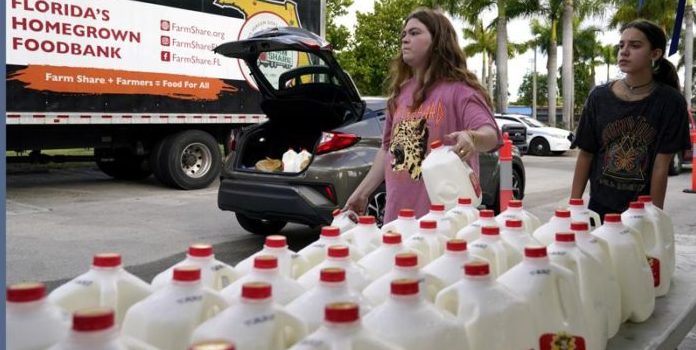(Headline USA) Hunger is a problem in Illinois every summer. When schools are closed, families don’t have school meals to help feed their kids. Record inflation is compounding the issue.
Steve Ericson, executive director of Feeding Illinois, the state association for food agencies, told The Center Square that this summer, inflation is making Illinois’ food scarcity problem even worse.
“The cost of everything has gone up and the demand side for our network of agencies has also gone up. So that is a bad combination,” Ericson said.
Who is hungry in Illinois? The numbers are staggering, Feeding Illinois says on its website.
People out of work, the elderly, people with health problems. A high percentage of people who live in rural areas are experiencing food scarcity, Ericson said.
Before inflation, people on tight budgets had been coping. Inflation has made getting by tougher, he said.
“Budgets are just getting squeezed. We are all feeling it. The buying power of whatever income people [have] has decreased,” Ericson said.
The unemployed, the elderly, people with health problems, people from every walk of life are experiencing food scarcity. Rural counties have fewer residents but a higher percentage of people who live in rural areas are coping with food scarcity.
Illinois food banks are doing everything that they can think of to keep up with the demand for food, Ericson said.
“We’re turning over every stone,” he said.
Food banks and food pantries need cash and volunteers to help, he said. Feeding Illinois is much better at turning dollars into meals than the average grocery shopper.
“We can take a dollar of donations and turn it into somewhere between four and five meals,” Ericson said. “We can turn that dollar into a lot more food than people can ever get going to the grocery store, buying the food and then donating it.”
Feeding Illinois buys food in bulk quantities and realizes considerable savings that way, he said. That is where the need for volunteers comes in.
“To stretch our dollars, we are buying bulk food—including meat. But then we need people to help repack it into smaller units,” he said. “We are always looking for volunteers.”
Feeding Illinois has a farm to food bank program to connect food agencies with local farmers. By buying locally, and cutting transportation costs, food banks can realize savings and provide healthier fruits, vegetables, cheese, milk, meat and eggs to people in need, he said.

